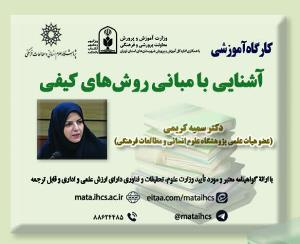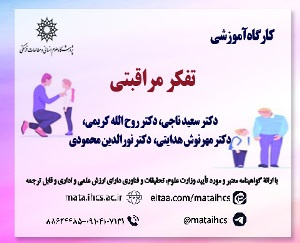امداد و نجات در موقعیت پرمخاطره و بیماری های واگیردار از منظر فقه امامیه (مقاله علمی وزارت علوم)
درجه علمی: نشریه علمی (وزارت علوم)
آرشیو
چکیده
در شرایط پرمخاطره که حیات یا سلامت جسمی نجاتگران را مورد تهدید جدی قرار می دهد، تشخیص وظیفه دینی و قانونی برای نجات جان گرفتاران یا حفظ جان نجاتگران، کاری دشوار است. این تحقیق به روش توصیفی تحلیلی، دلایل و مستندات فقهی را وارسی کرده و با بازخوانی ادله امداد و نجات پرمخاطره در موقعیت های مختلف، احکام متفاوتی را نتیجه گرفته است. در صورت تساوی نفوس، نجات و درمان واجب نیست؛ زیرا هر دو واجب الحفظ هستند. همچنین به مقتضای حدیث «لاضرر» و تعمیم نهی از عبادات و اطعمه زیان آور به موقعیت ضرر جسمانی، بر نجاتگر واجب نیست که در موقعیت نبود تجهیزات محافظتی به منظور درمان و دفع ضرر از دیگری، خودش متحمل ضرر معتنابه شود. اما با توجه به اطلاقات ادله امداد و نجات، رجحان و استحباب در این شرایط به اثبات رسید. استناد به حدیث «لا عدوی» در نفی قانون سرایت بیماری و ماندن در محیطِ شیوع بیماری واگیردار، مردود است؛ لکن نجاتگران عرصه طبابت و پرستاری، علاوه بر برخورداری از دانش، تخصص و تجهیزات، طبق تعهد به عنوان الزامِ ثانوی تا حدّ امکان باید به درمان بپردازند. اما در صورت ترک نجات در این شرایط، نمی توان حکم به ضمان تارک نجات نمود؛ هرچند فرد، مرتکب معصیت شده است.Search and Rescue in Venturous Situations and Infectious Diseases from the Point of View of Jaʿfarī Jurisprudence From the perspective of Imami jurisprudence
It is difficult to discern the religious and legal duty to save the lives of those trapped or to save the lives of rescuers in dangerous situations that seriously threaten the life or physical health of the rescuers. This research has reviewed the reasons and jurisprudential documents in a descriptive-analytical method and concluded different rulings by rereading the evidence of venturous search and rescue in different situations. Rescue and treatment in the case of equality of lives are not obligatory, because both of the lives must be saved. It is not obligatory, according to the necessity of the Ḥadīth (“News” or “Story”) of “prohibition of detriment (Arabic: لا ضَرَرَ, Ḥadīth of harm)” and the generalization of harmful worships and food to the situation of physical harm, on the savior to suffer the harm in the absence of protective equipment for the purpose of treating and repel the harm from others. However, according to the absoluteness of the proofs of search and rescue, preference (Arabic: رُجْجان, Rujḥān) and recommendation (Arabic: اسْتِحْباب, Istiḥbāb) were proved in these conditions. It is rejected to refer to the Ḥadīth of “No Infectiousness (Arabic: لا عَدْوی)” in denying the contagion of disease and staying in the environment of the outbreak of the contagious disease. However, the rescuers in the field of medicine and nursing, in addition to having knowledge, expertise and equipment, according to the commitment, should provide treatment as much as possible as secondary necessity. However, it is not possible to sentence to the liability of a leaver of rescue in case of failing (abandoning) to rescue in these circumstances, although the leaver has committed a sin.







